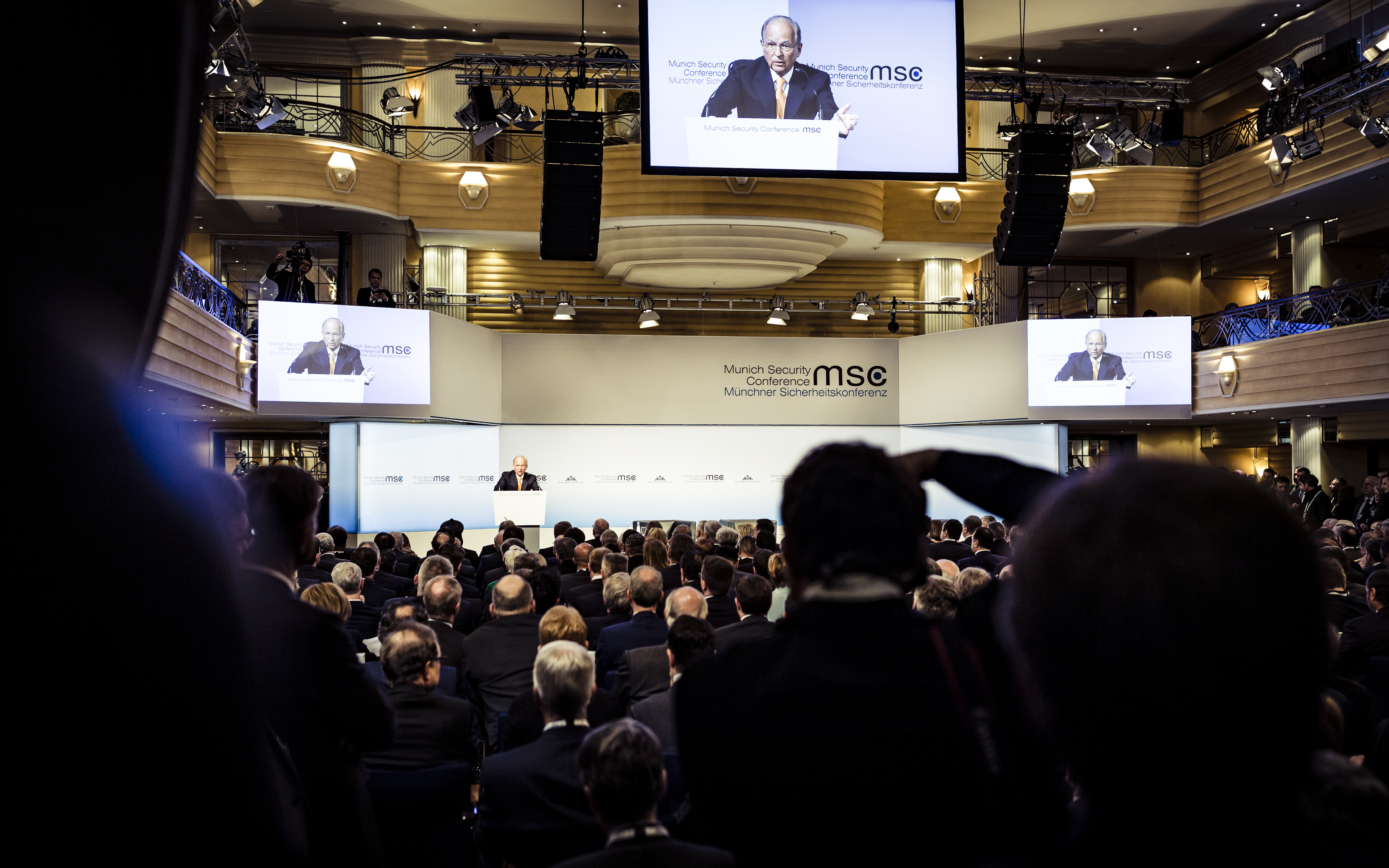Is a middle class Chinese woman’s decision on whether or not to buy a Barbie doll more important than who is the president of the United States? Such a question may seem flippant, especially in the aftermath of an election where promises were made that, if kept, could cause unprecedented levels of instability both domestically and abroad.
However, Nov. 14, Dr. Karl Gerth, professor of History and Hwei-chih and Julia Hsiu Endowed Chair in Chinese Studies at the University of California, San Diego, made his case for the question, “Can Chinese consumers rescue China and the world?” being one of, if not the most important question in the world today. His talk was part of the Institute for Asian Studies’ ongoing “Focus on China Series,” which coincided with International Education Week.
Gerth’s most recent book, As China Goes, So Goes the World: How Chinese Consumers are Transforming Everything, explores the implications of China’s attempt to shift from an export-oriented economy to one more focused on domestic consumption.
As Gerth postulates, “everything” here really does mean everything: “From your objective biosphere, the world that you inhabit, to your subjective experience of the world through your consciousness, this is all being impacted by this attempt to get China to go from the world’s manufacturer to the consumer.”
A reporter new to the China beat may be asked to tackle issues such as currency manipulation, human rights, military budgets, war with Taiwan, or other conventional and controversial issues that could fall under the umbrella of “What’s coming out of China that we need to worry about and respond to now?”
According to Gerth, all of these questions can be understood as resulting from the effects of China’s development of a consumer-driven economy, which is the central driver for both the radical transformation of Chinese society domestically in recent years and the consequences arising from the international competition over Chinese consumer consciousness and the environmental degradation left in its wake.
So how did we get here?
China is a country currently ruled by a party that is Communist in name and which espouses socialism with Chinese characteristics as official ideology. Not long ago, the government used its power to suppress individual consumption and instead promoted industrial production at all costs.
World Bank statistics show that among the largest countries for which data is available, China ranks as one of the worst in economic inequality. On the other hand, International Monetary Fund reports show that China’s world-beating economic growth has averaged around 10 percent over the last 30 years.
Whether this economic growth has corresponded to an increase in quality of life for Chinese people depends largely on which Chinese people you are talking about and your definition of quality of life.
“I would say there’s been a consensus for 20 or more years, among both Chinese and American political and economic elites, that Chinese consumers were meant to save the world,” Gerth continued. “By changing their economy from one that relied on all of us to keep buying stuff ad infinitum forever, and instead, unleash domestic consumption, get Chinese consumers to buy as many bottled waters, cars, and everything else that we associate with our own lifestyles, and that that would drive a new wave of economic growth around the world.”
Gerth presented the Chinese automobile industry as a case study in which the positive and negative trade-offs of China’s move towards a society of mass consumption can be examined.
“Once upon a time, China was one of the few socialist countries that decided it wasn’t going to compete at private automobiles,” Gerth explained. “China intentionally decided that it wasn’t going to build this mass automobile-dependent civilization. In the early 1990s, however, they reversed course, and within a decade-and-a-half they went from having virtually no personal cars to becoming the world’s largest market, passing the U.S. in 2009.”
Gerth expressed skepticism over claims that free-market principles and consumer animus being free to “do what it does” were the driving forces of this shift.
“The argument about cars I want to make here is that the car industry in China and the desire for cars wasn’t created because the government got out of the way, but rather the government rearranged the market and Chinese society in ways which helped push people into needing cars,” Gerth said.
The government accomplished this through a series of policies that included privatization of housing, urban planning that shifted from mixed-use to centralized business districts, and stimulating demand through reduced tariffs and car loans through state-owned banks.
But perhaps the single largest factor in China’s reversal of its previous stance toward the automobile industry was its preparations and negotiations prior to joining the World Trade Organization in 2001.
“To my mind, the most important thing that got China to dramatically change its economy in the 1990s, and what we’ve seen since then, is in the lead up to the WTO, China feeling like it has a teeny little window in which it had better develop key industries,” Gerth explained. “Before, foreign capital was kept out of China, or at least had a lot more restrictions on entering China.”
Gerth described this as a window of opportunity for developing a domestic car industry to prevent China being permanently locked at the lower end of the value-chain, out-produced and out-competed by firms such as General Motors or Toyota.
“If [China] developed that domestic car industry quickly and well enough, it would have its equivalent of one of the companies it would be competing with,” Gerth explained.
Being locked at the lower end of the value-chain would mean that the millions of Chinese graduates looking for new jobs would be working at Nike factories instead of in high-tech, value-added service sectors that would pay well enough to allow them to participate in the kind of consumer-driven economy China hopes to create.
In many ways, this model of stimulating the market to create a favorable environment for consumers was taken from the U.S.; as a result, China is facing similar consequences from these policies.
By the early ’90s, China had lost its energy independence and increasingly needed to rely on importing its oil from other countries. An Oxford Institute for Energy Studies report analyzing customs data from 2014 found that China imported 52 percent of its oil from the Middle East.
“We now see that it’s like many problems in China, not a problem of ‘can’t make the stuff,’ but a problem of ‘making too much of the stuff,’” Gerth said.
What happens when you have that massive overcapacity? You look for new markets for those cars. And a lot of those cars aren’t coming to the United States—yet—but are going to developing countries. So this car-dependent logic that was thrust upon China is now thrust on other parts of the world by way of China.
If China is taking advantage of its leverage with countries in places like Africa, where it gives significant aid to build roads and help facilitate the kind of car-centered economy in those places that was developed in China, aren’t we left with environmental and economic contradictions that not only haven’t been solved but have now been expanded to new arenas?
Suggesting that the credibility of those who advocate putting more money into the hands of Chinese consumers is substantially undermined by the finite nature of earth’s resources, Gerth continued, “In their analysis, they never talk about the externality side of all of this, they never talk about the consequences of re-balancing the Chinese economy on the biosphere the way I’ve sort of suggested.”
Unfortunately, Gerth’s conclusions on the state of affairs are more fire and brimstone than silver lining:
“In China, they’re on the front lines of this; they have more of a vested interest in figuring out the incredibly difficult math of how to have a better life and a growing economy without destroying the biosphere even more than they already have, so maybe the answers will emerge from there,” Gerth said. “I’m not sure they’re going to emerge from here.”
Having been raised by feral pandas in the remote forests of Chengdu, China has always formed a key part of my identity. After my career as a Hong Kong film producer was derailed by tabloid journalists, I knew I had found the work that would become my life’s purpose. I am passionate about journalism because it allows me to step into worlds I would otherwise never know while channeling my curiosity toward serving and informing the community.






